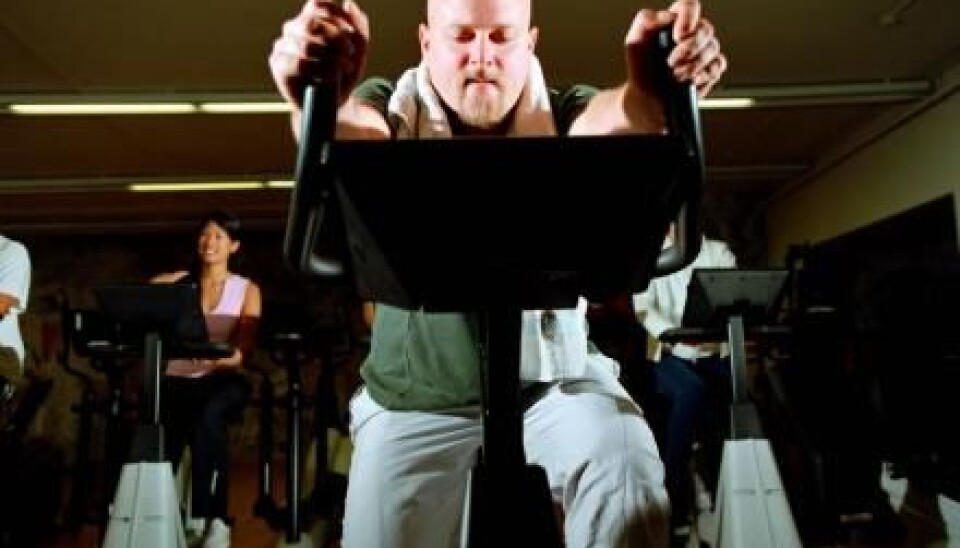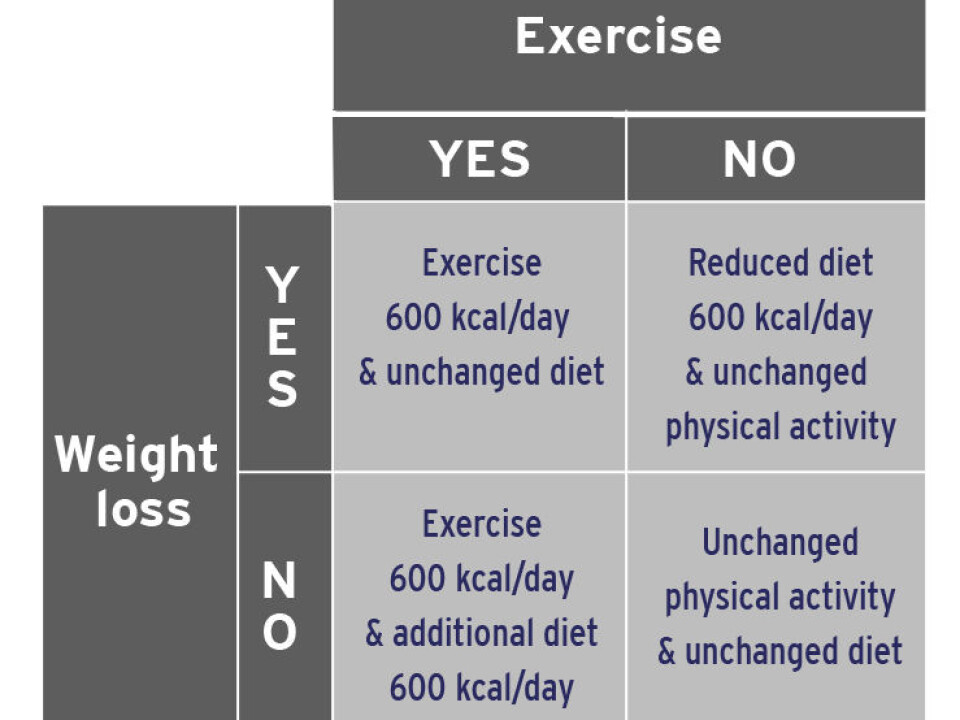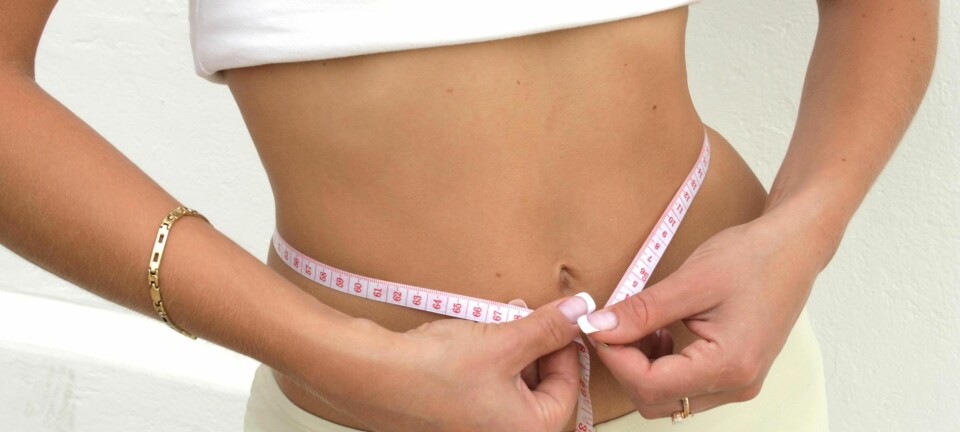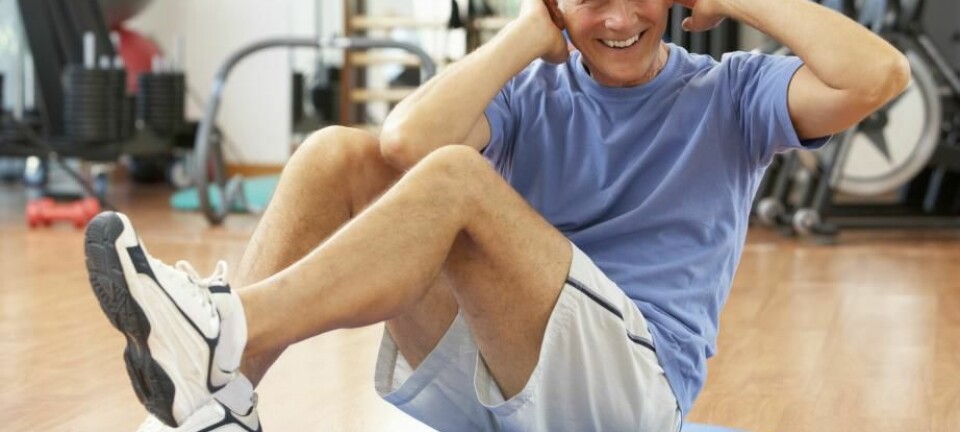
Exercise better for health than dietary changes
Men should exercise every day and get their heart rate up a few times a week. This makes them healthier than if they change their diet to lose weight.
Here’s some good news for students living on spaghetti and meat sauce and bad canteen food, and for fathers who struggle to find the energy to cook up a proper meal for the family.
If you exercise every day and get your heart rate up just a few times a week, giving it a bit extra when you run, bike or swim, your body will get healthier than if you change your diet in the hope that you’ll lose weight.
If you can’t improve your diet, just exercise
This is the simple message from a team of Danish researchers who have made the first thoroughly controlled study of how diet and exercise affects overweight men aged between 20 and 40.
“You should of course eat as healthily as possible, but if you have a lifestyle where it’s hard to find the energy to change your diet, you should know that it’s much healthier to spend your energy on physical activity rather than eating differently for the sake of losing weight,” says Pernille Nordby, who has conducted the study as a PhD student at the Department of Biomedical Sciences at the University of Copenhagen.

The results, published in the journal Obesity, are based on three months of intensive tests, including blood and muscle samples from 48 sedentary, moderately overweight men, who in various groups either changed their energy balance through exercise and diet (see figure below) – or didn’t change anything in their lives.
”Scarily” little exercise enough to keep you healthy
The analyses clearly show that exercise is the best way to keep track of blood sugar in the body by keeping insulin resistance and glucose intolerance down – or in other words: exercise is far better than dietary changes to keep serious diseases such as type 2-diabetes at bay.
”And it’s almost scary to see how little time you need to spend on exercising, as long as some of it is intensive,” says Nordby.
“Calculations by other researchers show that in a week of high-intensity exercise, you only burn 250 kcal. That’s about 35 kcal a day – but the health-promoting effect on insulin sensitivity is so great that in order to achieve the same effect by only eating 35 kcal less each day on a diet, you would probably need to be on a diet for several years.”
Backed up by top researchers
[This study] fits in well with international literature in this field, and it backs up all the research that shows that it’s better to be fat and fit than slim and lazy.
Professor Bente Klarlund Pedersen
The study has been met with great excitement by one of the country’s leading researchers in the field:
“This is a really, really important study, and I have no doubt that the results can be taken as evidence that you can improve your metabolism more by exercising than by losing weight,” says Professor Bente Klarlund Pedersen, of the Department of Orthopaedics and Internal Medicine at the University of Copenhagen.
“It fits in well with international literature in this field, and it backs up all the research that shows that it’s better to be fat and fit than slim and lazy,” she says.
This view is echoed by another leading researcher in the field, Professor Arne Astrup, the head of the Department of Human Nutrition at the University of Copenhagen:
I’m not saying that you shouldn’t make changes to your diet if you eat unhealthy food, but conversely, it is perhaps easier to motivate yourself to engage in a bit of physical activity than it is to change your entire diet.
Pernille Nordby
“This is an excellent study which is of great importance to mildly overweight people who are willing to make an effort to improve their health,” says Astrup, adding that the study clearly shows that optimal health cannot be achieved solely by losing weight through a diet or dietary changes.
“It’s also necessary to exercise to achieve the important improvements in insulin action in the muscles,” he says.
“For people with more severe levels of obesity, it is more difficult to exercise. Here one must start by getting the weight down through dietary changes, and then start exercising when possible.
Exercise fills you up
According to Nordby, the new study also suggests that exercise not only makes our bodies healthier. It appears that exercise over time also reduces our appetite, even though our energy consumption goes up.
One of the four groups in the study was for instance asked to consume an added amount of calories, equivalent to what they had burned off through exercise in the past three months.
This seemed easy for the participants in the very beginning, when caloric intake could easily be increased in step with the exercise, but after 6-8 weeks, the situation reversed.
”They started reporting that even though they had eaten their beef bearnaise like they used to, it was difficult for them to eat up, and it annoyed them that they had to,” says Nordby.
“This could be an indication that exercise makes it less pleasant to have the stomach full of large portions of food with a high fat content.”
Exercise affects intestinal hormone
When the researcher dug deeper into the literature for an explanation of why exercise makes us feel full, she came across a Danish study from 2010, which showed that exercise affects an intestinal hormone called GLP-1, which has attracted the attention of obesity researchers. GLP-1 regulates our appetite, and our bodies secrete more during exercise.
”This may contribute to a picture of how the body up-regulates hormones, enzymes or transmitter substances, making it easier to regulate the appetite and get a feeling of fullness when you’re physically active,” she explains.
“But we still don’t have a clear explanation because the body initiates a whole range of different processes when we move.”
Perhaps our diet means less than we think?
Nordby also draws a parallel to another Danish study, which was recently published on ScienceNordic.
Here, researchers had difficulty finding any clear correlation between our diet and our health. The conclusion was that it seems almost irrelevant to the individual’s health whether he or she eats a regular Danish diet or a new Nordic diet with less meat and fat and more vegetables.
“Perhaps this study, together with ours, shows that the body is designed to make optimal use of nutrients, regardless of which diet it’s on. And maybe it also shows that our health depends, more than anything else, on how active or inactive we are?
“I’m not saying that you shouldn’t make changes to your diet if you eat unhealthy food, but conversely, it is perhaps easier to motivate yourself to engage in a bit of physical activity than it is to change your entire diet.”
-------------------------
Read this article in Danish at videnskab.dk
Translated by: Dann Vinther
Scientific links
- Endurance training per se increases metabolic health in young, moderately overweight men; Obesity (22. marts 2012); doi:10.1038/oby.2012.70
- Extremely short duration high intensity interval training substantially improves insulin action in young healthy males; BMC Endocrine Disorders 2009, 9:3 doi:10.1186/1472-6823-9-3
External links
- Pernille Nordby's profile
- Bente Klarlund Pedersen's profile (in Danish only)
- Arne Astrup's profile (in Danish only)








